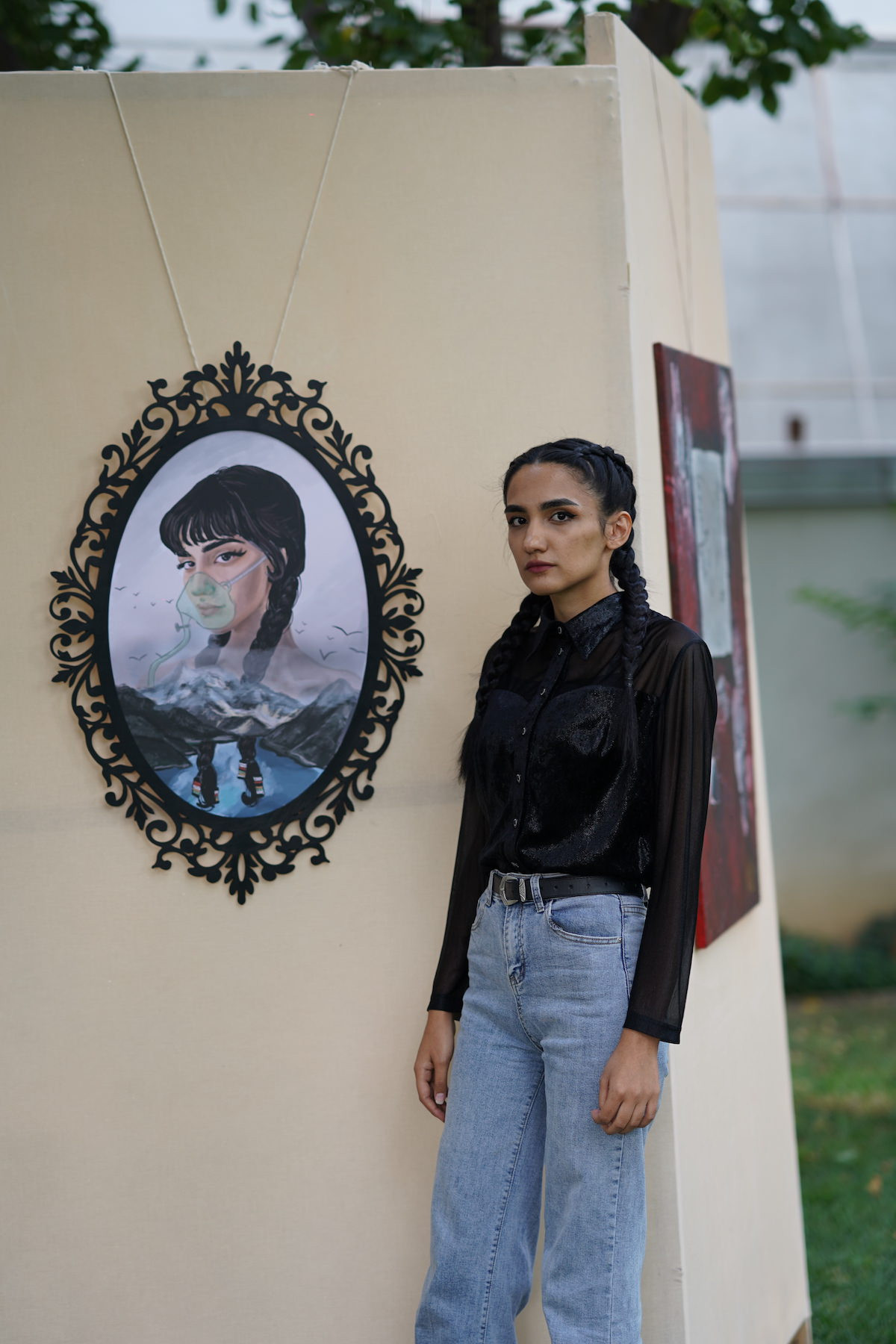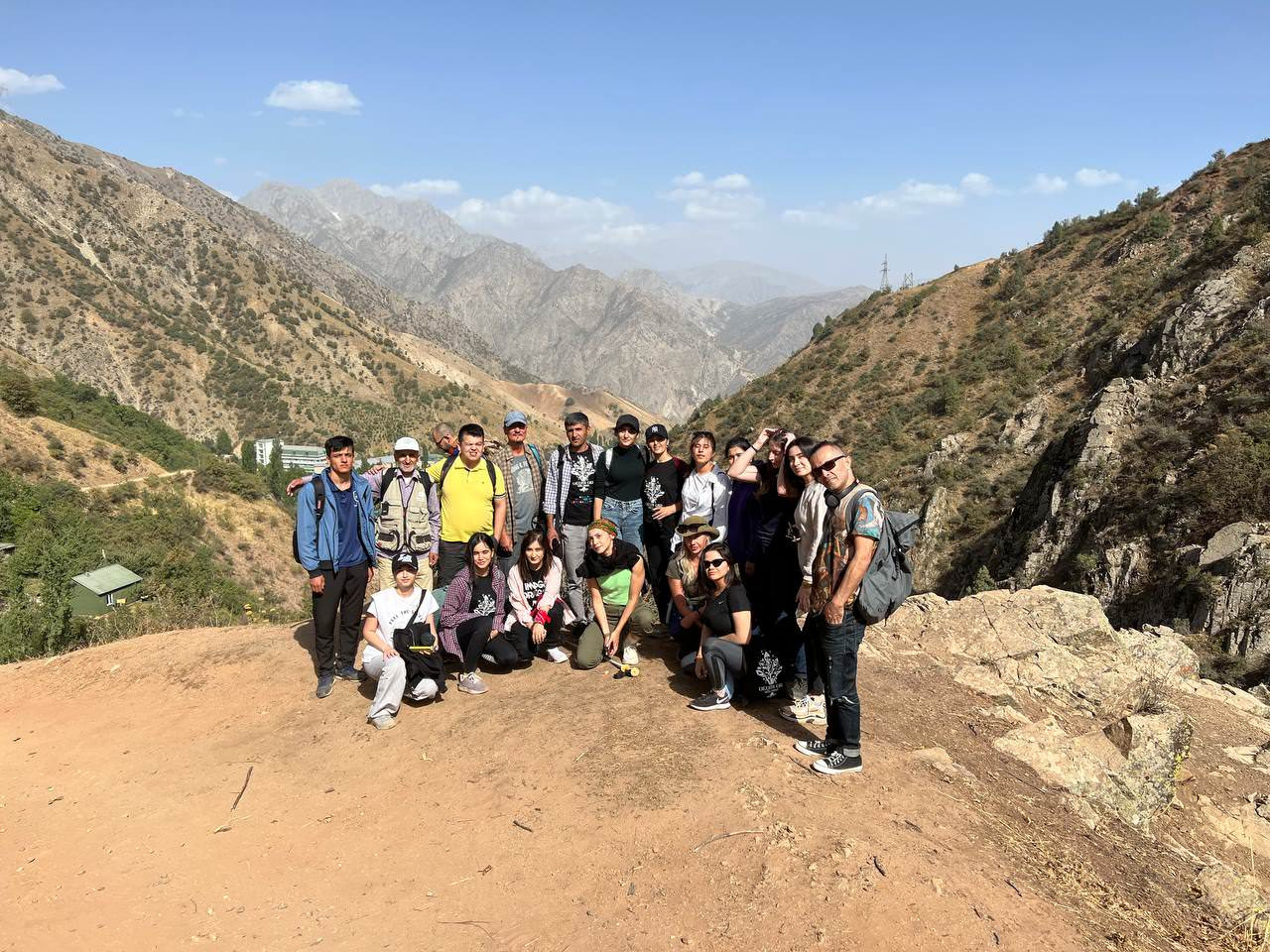Sayohati Sabz (Green Journey) is an art project that transcends geographical boundaries, taking remote communities and local and international art activists on a journey together to explore the shared vulnerability of humanity to climate change, and the need to build shared cross-border resilience.
Tajikistan is mountainous and home to some of the most enchanting and untarnished natural landscapes on the planet. It is also one of the most vulnerable regions in the world to the impacts of climate change, where landslides and extreme weather have devastating visible consequences for the mostly rural and impoverished population in remote mountainous villages. 70% of the population are living in rural areas and depend on small-scale agriculture for sustenance.
The space for civic and political expression in Tajikistan is closing – a trend which has accelerated since the Covid-19 pandemic. In this context it is essential to support local artists by promoting their work as a tool for advocacy and activism. With the support of international actors, the work of local artists has proven to be a powerful and provocative tool in recent years in Tajikistan, provoking thought and dialogue around important social, gender and human rights questions.
Eco-art as a response to environmental challenges
Sayohati Sabz ("Green Journey") transcended geographical boundaries, taking remote communities and local and international art activists on a journey together to explore the shared vulnerability of humanity to climate change, and the need to build shared cross-border resilience.
Sayohati Sabz was an innovative art collaboration project that brought together individuals who are most vulnerable to the impacts of climate change with art activists passionate about advocating for sustainable change through their work. Just like the devastating effects sof climate change, Sayohati Sabz went beyond cultural, social, and geographical borders, and engaged some of the communities most affected and most marginalized from the global discussion.
In the summer of 2022, the project hosted an eco-art residency for young artists and activists from all over Tajikistan. The residency took them to remote communities in regions across Tajikistan that are most affected by climate change. During the residency the artists – visual and graphic artists, videographers, and photographers – expanded their knowledge in the field of modern art, eco-art, and eco-activism by exchanging with European and Central Asian artists and experts. The artists translated the residency into art works and installations under the guidance of the Central Asian artists.
The international conference and exhibition "Sayohati Sabz - Art and Ecology" in Dushanbe presented the works made during the residency and programmed talks about art activism and contemporary art from Tajikistan, Central Asia, and Europe. Panel discussions addressed environmental problems in Tajikistan and the wider region as well as artists' responses to the environmental challenges of today. The exhibition of the works featured both traditional and contemporary art forms, including those made from recycled products and material.


